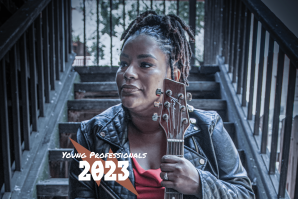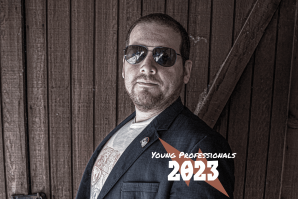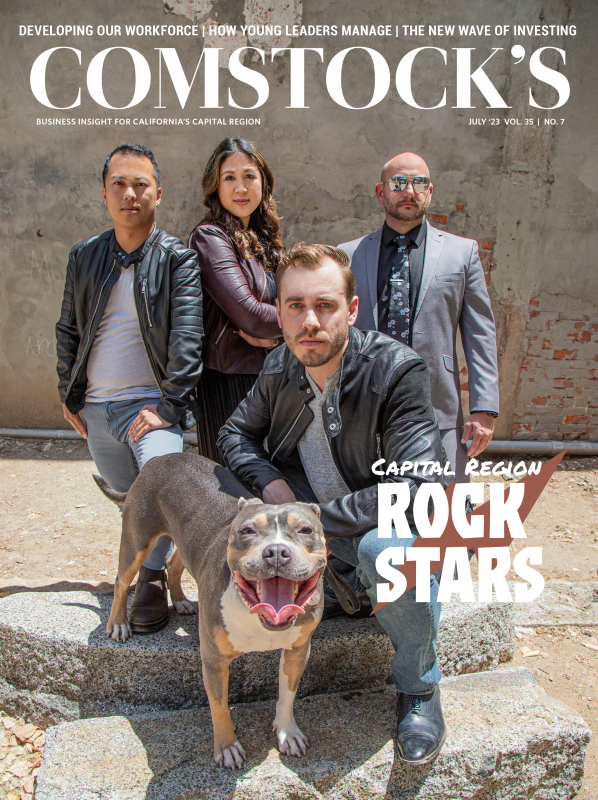Eric Lam didn’t care for college. In 2018, as a freshman at UC Davis studying managerial economics, he decided to drop out. “I knew I wanted to do something in business, and I knew that I could probably learn that off YouTube,” says Lam. A friend suggested real estate. So he watched a ton of YouTube videos and he earned his real estate license; within two months he closed his first deal, then he closed more deals and squirreled away the profits, staying home and eating noodles to save cash.
In 2020, he used his savings to buy a run-down house in Rancho Cordova, then fixed it up and flipped it for a profit of $48,000. He then bought another fixer-upper and flipped it again. Then another. He has now flipped a total of 12 homes. “The goal this year is to break 1 million in revenue,” says Lam.
He’s 24 years old.
Lam is clearly an outlier, but his aggressive attitude towards real estate — and investing more generally — channels the bullish spirit of Gen Z, which is generally defined as being born between 1997 and 2013. Fifteen years ago, many millennials were scarred by the housing market collapse and the Great Recession. Gen Z is coming of age in a soaring stock market.
Eric Lam was an economics major when he decided to drop out of
college and flip houses instead. At 24, he’s already flipped 12
houses. His goal is to break $1 million in revenue.

“The millennials got hit pretty hard,” says Sanjay Varshney, who runs the Goldenstone Wealth asset management company. “If you look at the wealth levels of millennials, they are well below every other generation,” so young millennials simply “didn’t have money in their pockets to invest.” But the oldest members of the Gen Z cohort started their careers in an economy with historically low unemployment (despite the temporary slowdown from the pandemic), juicy low interest rates and even some extra cash from COVID stimulus checks. As Varshney puts it, “Gen Z is a little different.”
The Gen Z Arsenal
For starters, Gen Z has a different set of investing tools. It’s easy to sponge up information. Just as Lam used YouTube to learn the ropes of real estate, others use TikTok, Instagram and podcasts to learn about wealth accumulation. A 2021 survey from The Motley Fool found that 91 percent of Gen Z respondents turn to social media for investing advice. In the Reddit subforums of Wall Street Bets, it became easy — even fun — to invest in “meme stocks” like Game Stop and AMC. In the old days you needed a financial advisor or a broker to buy stocks or bonds. Now you just need a phone and an app like Robinhood, where the fees have been slashed to zero. You can buy fractional shares of Apple or Tesla stock for as little as $1.
And stock investing isn’t only happening in Robinhood. A 2023 analysis from Vanguard found that when looking at retirement plans, 97 percent of Gen Z employees had invested in stocks — a noticeable jump from 2006, when 25 percent of 18- to 24-year-old employees owned no stocks at all. “People my age are definitely interested in investing,” says Lam, who thinks that his friends are “a lot more willing to take risks” than prior generations.
This seems especially true in real estate. Erin Stumpf, a former president of the Sacramento Association of Realtors, has noticed a stark difference between millennials and Gen Z. When older millennials were looking to buy a home, she says, their goal was to plant roots and settle down. “The current crop of buyers in their 20s is totally different,” says Stumpf. Many of her younger clients, after spending hours learning from TikTok influencers, are now drawn to a new type of real estate: “house hacking.”
House hacking is basically a new subset of real estate investing; instead of a buyer living in a home, he or she might flip and resell it, or live in one room and rent out the rest to provide a stream of income. “When you’re an owner-occupant, your financing terms are a lot more favorable, and you don’t need as big of a down payment,” says Stumpf. “This generation is keyed into that,” she adds, as they’ll rent out rooms to their friends or strangers and “use it to build wealth.”
Take Aralyn Tucker, a 30-year-old “Z-ennial” (her term) who manages a Fleet Feet running shoes and apparel store in downtown Sacramento. Tucker was frustrated with ever-increasing rents. In 2021 she paid $1,850 in rent for a one-bedroom apartment in West Sacramento (no gym, no parking space), and she knew it would likely surge higher. But she couldn’t afford a monthly mortgage on her own.
So in 2022 she bought a two-bedroom condo (her father helped with the down payment) and rented the second room to a coworker who’s in the Navy Reserves. (“He fixes things and I feed him; it works out great.”) Thanks to this bonus rental income, Tucker’s monthly out-of-pocket is now about the same as it was at her old apartment, but each month she’s racking up equity. And her mortgage is unlikely to rise. “Pending catastrophic market failure, I never have to move again. This is mine,” says Tucker, and assuming she makes her mortgage payments, adds that “No one can take that away. The bank can’t take that away.”
And if Tucker’s home appreciates in value, the deal gets even sweeter. This brings us to the concept of leverage, a word that for the “olds” has the whiff of a foul odor. Those hunting for jobs during the Great Recession (especially millennials) might remember that a glut of leverage — specifically, by banks stuck with toxic subprime mortgage loans — triggered a collapse in the housing market. Leverage sank the economy.
Now, 15 years later, Gen Z investors see the upside of leverage. “I don’t think a lot of people understand that with real estate, you can leverage money,” says Lam. He gives a simple example. Let’s say a home costs $400,000. The down payment is 20 percent, so you fork over $80,000 in cash. (This isn’t realistic for the average 20-something, barring help from parents.) If the housing market heats up and the home appreciates by 20 percent, now it’s worth $480,000, but your cash investment just doubled. Originally the home loan was $320k and you had $80k in equity; now you have $160k in equity.
“But if you put 80 grand in the stock market and it goes up 20 percent, well, you only made $16,000,” says Lam. House hacking 101. To his credit, Lam concedes that “leverage is also super scary, because if things go south they go really south.”
Then there’s the open-mindedness about geography. Thanks in part to the rise of remote work, Gen Z is perhaps more geo-flexible than the older generations. If you can’t afford to buy a home where you live, why not buy an investment property somewhere else, or even just flat-out move? “Nowadays, young buyers have so many options,” says Greg Paquin, president of the Gregory Group real estate consulting group. Paquin, who’s in the baby boomer generation, says that when he was first buying a home the idea of investing elsewhere never occurred to him, as “you weren’t hearing about things like Boise or Salt Lake.”
Stumpf, for example, helped two 20-something couples who lived in the Bay Area. They were priced out of San Francisco but they wanted to invest in real estate, so she helped them purchase duplexes in Carmichael and Fair Oaks — strictly as investment properties. More house hacking.
Open to the Future
Real estate is only one of the many asset classes now available to Gen Z. Consider crypto — not just Bitcoin but also “meme coins” like Dogecoin and Shiba Inu and the wild world of non-fungible tokens, or NFTs. A 2022 survey from Capitalize.com found that 56 percent of Gen Z (as well as 54 percent of millennials) plan to use crypto in their retirement strategy.
“Younger folks are much more open to putting their money into cryptocurrency,” says Bryan Barton, who runs Sacramento’s Bitcoin meet-up group. Perhaps younger people are simply more intrigued by alternative investments, or swayed by Bitcoin’s lucrative (if erratic) 3,000 percent-plus return since 2013. But Barton thinks the appeal of crypto is more philosophical. “It’s the future,” says Barton. “And of course when it comes to the future, young people are more eager to embrace it.”
Other Gen Zs are investing in themselves and their side hustles. Few hustle more than Chloe Wang, a 20-year-old, third-year student at UC Davis studying managerial economics. While in school she launched or co-launched several businesses including Morri, a service that prints and ships physical stickers for online-only artists, and The Aggie Baggie, which creates more affordable UC Davis merchandise for students. (She also says she works “two and a half” jobs.)
That entrepreneurial ethos came early to Wang. In elementary school she sold cookies for the Girl Scouts, and it later occurred to her that “If I could sell cookies for the Girl Scouts, then I could sell stuff for myself.” So in middle school she bought boxes of 18 cookies for $8 and sold each cookie to her classmates for $1 — she adds that “I’m not even sure this was legal” — and tucked the profits into savings.
Now Wang also invests in stocks; two-thirds of her capital is in equity, and she’s mulling over how to deploy the other third. She’s considering “fractional real-estate,” where you own a slice of a property that’s purchased by a larger investing group.
This is not to say that all or most Gen Zers are pouring their money into stocks or real estate. Especially when excluding 401(k) plans, most are still in school or early in their careers and just don’t have the money. Wang says she occasionally chats about stocks with other students on campus, but “I wouldn’t consider this a large percentage.”
Gen Z only makes up 4 percent of all home buyers, according to a 2023 report from the National Association of Realtors. And to give a sense of just how small the volume is, Varshney says that he doesn’t know of a single wealth management company that focuses on Gen Z, because if they did, “people like myself would go broke.”
Even if they are not yet the biggest slice of the economic pie, it’s also true that Gen Z is more likely to care about the social impact of their investments. Tucker, the Fleet Feet store manager, says that Gen Zers are voting with their pocketbooks because they “have access to so much more information as to where the money goes.”
She even considered social impact when buying her home. Tucker’s father is Black, and she says that it was important to her to invest and live in a historically Black neighborhood. She analyzed the census data (she has a background in housing policy) and found that North Natomas had the highest percentage increase of African American families since the last census, and this helped seal the deal. “It was really important for me to invest in a neighborhood where people look like me, and create that psychological safety of homeownership in a community environment,” says Tucker.
Wang also considers social impact. Her goal is to purchase a home within five years of graduating. When she considers investing time and money in her own micro-businesses — like helping artists distribute their creations, and splitting the profits 50-50 — she keeps social impact in mind. “Creating social good, and giving back to the community, and investing in things like that is definitely important to me.”
Stay up to date on business in the Capital Region: Subscribe to the Comstock’s newsletter today.
Recommended For You

Millennial Management
Managers under 40 in the Capital Region draw from personal and professional experience to lead their teams
A cohort of leaders under the age of 40 making a difference in the Capital Region. What people like Rhodes lack in age and decades of professional accomplishments, they make up for with lessons learned through family and experiences.

Young Professionals: Jade Rodgers
Meet the 10 young professionals who are rocking it in their careers and community
When it comes to navigating life and work, 916 Ink’s Jade Rodgers is a firm believer in “ubuntu,” an African word meaning “my humanity is tied to yours.” “Our experience in this life is interconnected,” she says.

Young Professionals: Michael Vargas
Meet the 10 young professionals who are rocking it in their careers and community
As a newly elected member of the Elk Grove Unified School District — one of the largest in the state — a partner in a law firm representing high-tech companies and a molder of young legal minds as a professor, it’s important for Michael Vargas to give back to the community.

Young Professionals: Dr. Nkiruka Ohaegbu
Meet the 10 young professionals who are rocking it in their careers and community
The pandemic forced many parents of young children to reduce their volunteer time. Dr. Nkiruka Ohaegbu was not one of them. While guiding an essential government service from her home computer and overseeing her children’s remote education, Ohaegbu maintained her extensive commitments to the community.




